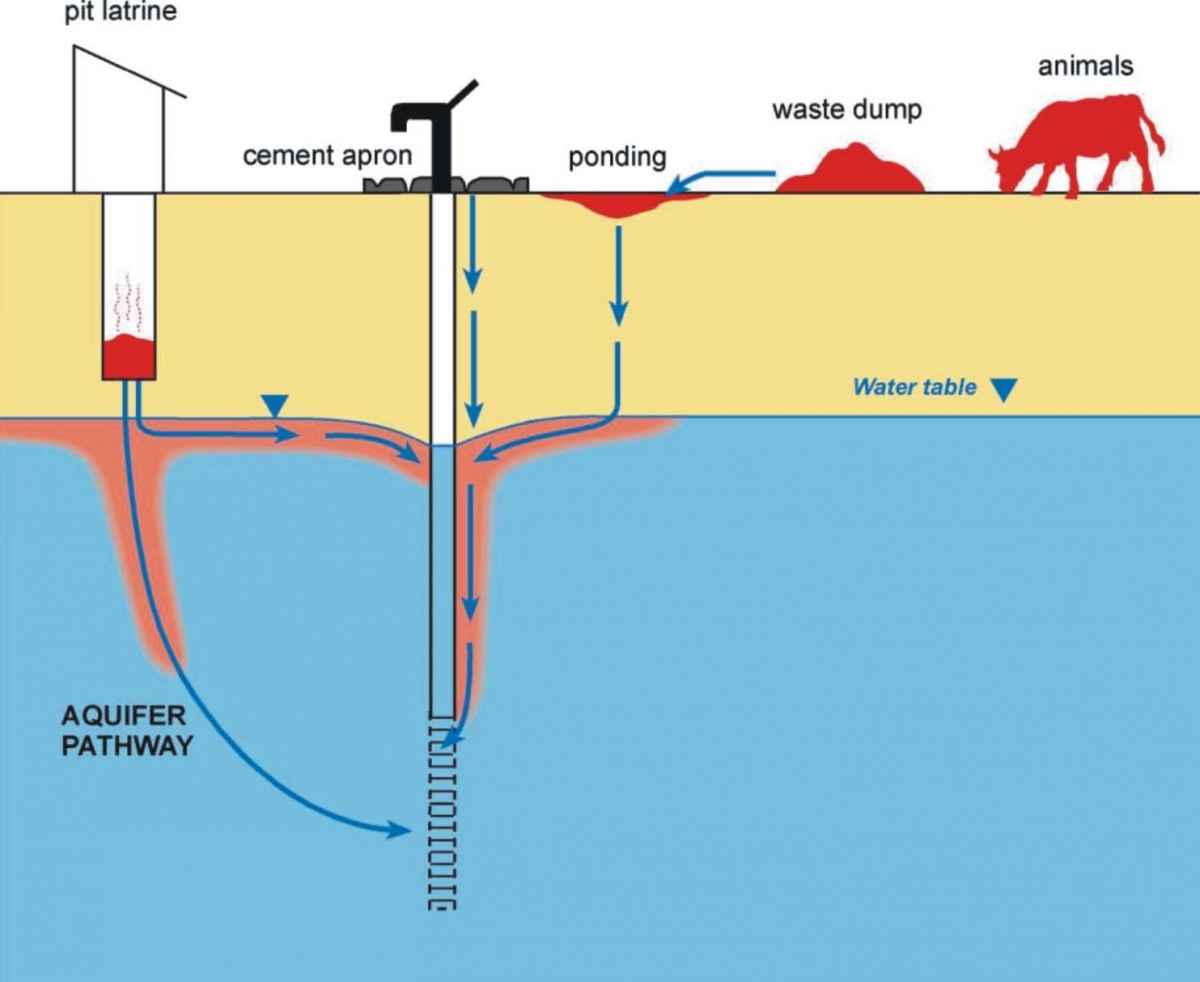These "Guidelines for Assessing the Risk to Groundwater from On–Site Sanitation (ARGOSS)" were developed to provide guidance on how to assess and reduce the risk of contamination of groundwater supplies from on–site sanitation systems and are aimed at those responsible for planning low cost water supply and sanitation schemes. The manual developed by the British Geological Survey has been field tested between 1999 and 2003.
Specific objectives include providing –
- Guidance where water supply and/or sanitation systems are planned;
- Confidence that existing groundwater supplies are properly constructed (pollution risk is assessed as low and monitoring confirms good quality water);
- Help to identify the likely source(s) and pathway(s) of pollution where pollution is observed;
- Guidance on the planning of monitoring programmes.
The need for such a manual is apparent given the importance of groundwater for water supply and the lack of any existing decision making guidelines. It does not seek to provide a set of prescriptive rules but instead to provide the framework for arriving at a decision based on an evaluation of the risks posed by on-site sanitation systems to groundwater drinking water supplies in different settings or environments.
However, the risk needs to be balanced by the requirements of the user community, the cost of design, and the quality of supply. Decisions on what risks are acceptable will vary with location and situation.

The manual can be conveniently subdivided into two parts: Part 1: the background to the problem which provides the rationale for the guidelines in Part 2: Water supply and sanitation choices. The guidelines developed needed to meet certain criteria, such as -
- only easily available or known data are required when making a risk-based evaluation;
- the tables and figures provided to aid the decision-making process are easy to use and require only basic understanding of geology/hydrogeology;
- the approach is rational and transparent.
The manual is meant for both those with good technical knowledge of the problem (e.g. water and sanitation engineers) and those who are less familiar with the scientific and technical arguments. It aims to be accessible to everyone with a role in the planning of water supply and sanitation at programme level.
Download the manual here.